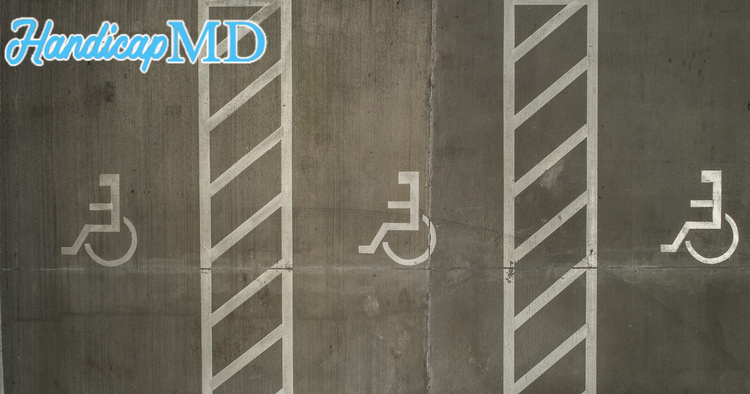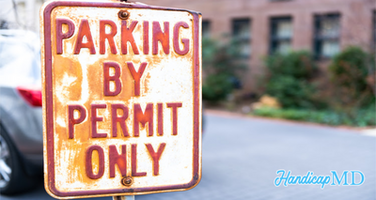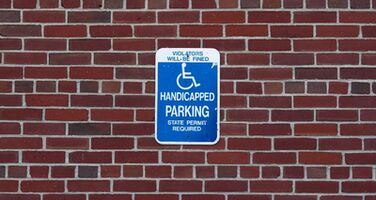
The Impact of Handicap Placard Abuse and How to Report it in Kentucky
Introduction
Handicap placards are essential tools that provide parking privileges to individuals with disabilities. These placards are intended to ensure that individuals who genuinely require accessible parking spaces have the convenience and ease of access they need. Unfortunately, there are instances of disability placard abuse, where people misuse or fraudulently obtain these permits for personal gain. This article aims to explore the impact of handicap placard abuse and guide you on how to report such abuse in the state of Kentucky.
The Impact of Handicap Placard Abuse
Permit abuse has significant implications for individuals with disabilities and society as a whole. Let's delve into some of the key impacts this abuse has:
Restricted Access for Those in Need
Genuine individuals with disabilities often face difficulty finding accessible parking spaces due to the misuse of handicap permits. This abuse limits their ability to park close to their destinations, making everyday tasks more challenging. It is essential to address permit abuse to ensure equal access for everyone.
Financial Loss
When individuals fraudulently obtain permits, they deprive local businesses and municipalities of revenue generated from parking fees. This loss impacts the economy and affects funding for important services and infrastructure improvements.
Deterioration of Public Trust
Permit abuse erodes public trust in the system designed to support individuals with disabilities. When people witness abuse or see others take advantage of parking privileges they don't genuinely require, it creates a sense of unfairness and diminishes the perceived legitimacy of the program.
Undermining the Intent of the Program
The purpose of disability permits is to assist individuals with disabilities by providing them with accessible parking options. Abuse of these permits undermines the intended goal of the program and compromises the support and assistance that genuinely disabled individuals need.
How to Report Handicap Placard Abuse in Kentucky
If you suspect or witness placard abuse in Kentucky, there are steps you can take to report it and ensure the appropriate authorities address the issue. Here's a comprehensive guide on how to report it in Kentucky:
Step 1: Gather Information
Before reporting the abuse, gather as much information as possible about the incident. Note the date, time, and location of the observed abuse, along with any details regarding the vehicle and the permit in question. This information will be crucial during the reporting process.
Step 2: Contact Local Law Enforcement
Contact the local law enforcement agency responsible for handling parking violations in your area. Provide them with the collected information and describe the observed abuse. They will guide you on the necessary steps and may request additional details if needed.
Step 3: Report to the Kentucky Transportation Cabinet (KYTC)
In addition to reporting to local law enforcement, you can also submit a report to the Kentucky Transportation Cabinet. The KYTC oversees transportation-related matters in the state, including parking violations and disability permit abuse. Visit their official website or contact their designated department to file a report.
Step 4: Provide Evidence if Possible
If you have any photographic or video evidence of the handicap placard abuse, make sure to include it when reporting the incident. Visual evidence can be valuable in supporting your claim and aiding the investigation process.
Step 5: Follow Up on the Report
After submitting the report, it is essential to follow up with the respective authorities to ensure that appropriate action is taken. Be cooperative and provide any additional information or assistance they may require.
Frequently Asked Questions (FAQs)
1. How can I recognize disability pass abuse?
DIsability pass abuse can manifest in various forms, including using someone else's pass, displaying an expired or counterfeit pass, or using it without a valid disability. Look for signs of misuse, such as individuals who appear physically able-bodied but use a disability pass.
2. Can I report disability pass abuse anonymously?
Yes, you can report Kentucky handicap placard abuse anonymously if you prefer not to disclose your identity. However, providing your contact information can be helpful if authorities need to reach you for additional details or clarification.
3. What penalties can individuals face for disability pass abuse in Kentucky?
This abuse is taken seriously in KY, and those found guilty may face legal consequences. Penalties can include fines, suspension or revocation of the permit, and potential criminal charges depending on the severity.
4. Is there a specific hotline for reporting disability pass abuse in Kentucky?
Currently, there is no specific hotline dedicated solely to reporting abuse in KY. However, you can contact local law enforcement or the Kentucky Transportation Cabinet to report such incidents.
5. How long does it typically take for authorities to address a reported case of disability pass abuse?
The duration for authorities to address a reported case of pass abuse can vary depending on the complexity of the case and the workload of the relevant agencies. It is recommended to follow up on your report if you haven't received any updates after a reasonable period.
6. Can I report out-of-state disability pass abuse in Kentucky?
While it is advisable to report an abuse to the relevant authorities in the state where the incident occurred, you can also inform local law enforcement in KY. They can guide you on the appropriate steps to take and communicate with the respective authorities in the other state.
Conclusion
Handicap placard abuse undermines the purpose of providing accessible parking options to individuals with disabilities. By reporting incidents of abuse, you contribute to the preservation of equal access and the legitimacy of the program. If you witness or suspect handicap placard abuse in Kentucky, follow the steps outlined in this article to report it effectively. Together, we can create a more inclusive and fair environment for everyone.
.png)






